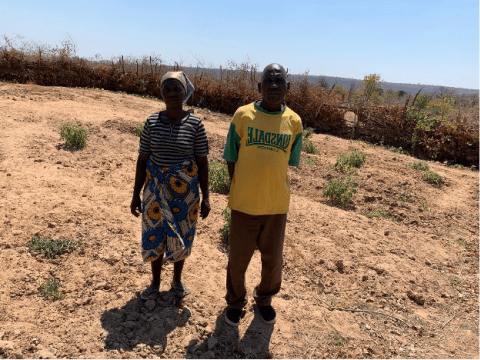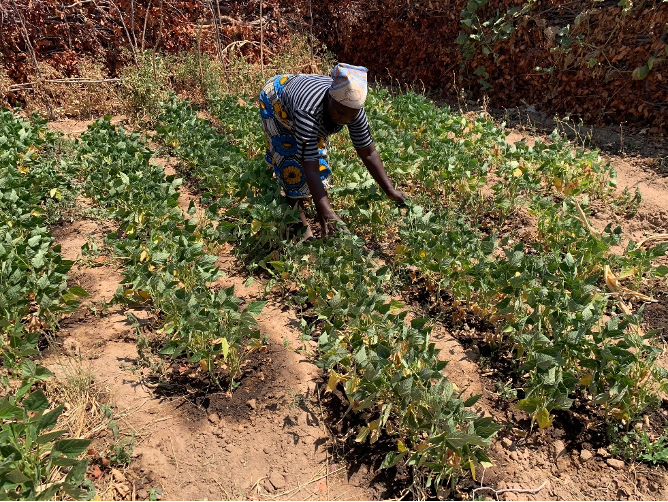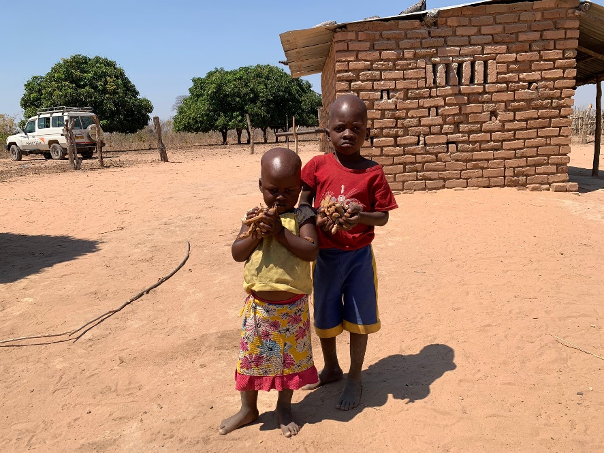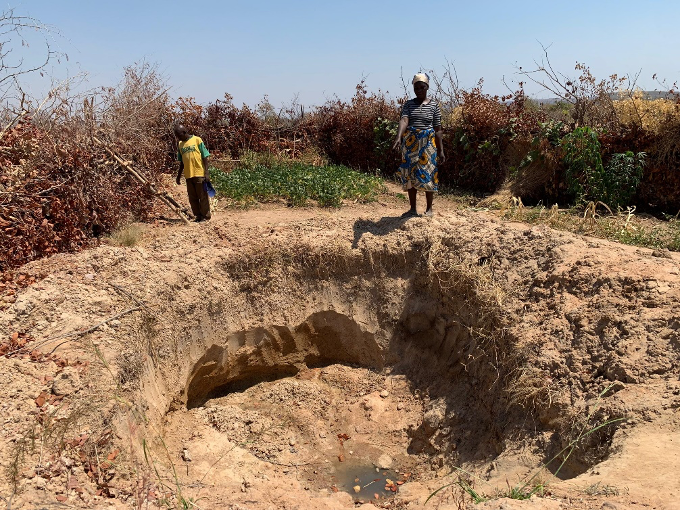El Niño Drought Devastates Zimbabwean Family's Livelihood, but Hope Remains

By Leana Padera (Communications Intern)
In Kariba District, Zimbabwe, where the fields once brimmed with life, the El Niño-induced drought has left a trail of devastation. Across Southern Africa, communities like the Chisarawoga Village are facing the harsh reality of climate change, where unpredictable weather patterns are transforming lives and threatening livelihoods. For 51-year-old Luckmore Mambowatema, the drought has pushed his family to the brink, forcing difficult decisions in a relentless fight for survival.
Mambowatema, a maize mill owner and subsistence farmer, lives with his two wives and 11 children. His story reflects the deep challenges confronting many families in rural Zimbabwe as they grapple with rising temperatures, poor rainfall, and shrinking resources. For years, Mambowatema relied on his diverse farming practices to provide for his large family, integrating cotton into his crops to bring in additional income. Last year, he earned $800 from selling cotton—a crucial lifeline that kept his children in school and ensured they never went without food.
But this year, everything has changed.

In the family’s once-flourishing garden, Mambowatema’s wife, Selina, points to the lifeless crops that were once a source of pride. “We were hoping to harvest fresh beans, but look, the plants are as good as dead,” she says, her voice heavy with frustration. The garden, which once fed their family three meals a day, now stands barren, a stark reminder of the drought’s grip on their lives.
The impact of the drought extends beyond their fields. “I had to close down my small business because I haven’t had any customers since the drought started,” Mambowatema explains, referring to his maize mill. The mill, once bustling with activity, now sits idle. With no crops to grind and no customers to serve, his main source of income has dried up, leaving the family in a desperate situation.
In an attempt to make ends meet, Mambowatema was forced to make the heart-breaking decision to sell his cattle, a valuable asset he had hoped to pass down to future generations. “I sold the few cows I had to support my family, and it was a great loss for me,” he says, his voice breaking with emotion. “Those cattle were my family’s heritage.”
As food supplies dwindle, prices in local markets have soared. “Can you believe we used to buy a bucket of maize for $2? Now it costs $10,” Mambowatema says, shaking his head in disbelief. The skyrocketing prices have strained families already struggling to make ends meet, forcing many, like Mambowatema’s, to cut down to just one meal a day. With no income and no harvest, they now rely on foraging for wild fruits to stave off hunger.
Most heart-breaking of all is the impact on Mambowatema’s children. “I want my children to learn and have a better life, but I can’t afford the school fees anymore,” he confides, his eyes filled with concern. The drought has taken not only their food and livelihood but also their future—his children’s education has been interrupted, and Mambowatema is unsure when they will be able to return to school.

The drought has also robbed the family of another essential resource: water. Mambowatema dug deep wells to water his crops, but they have since run dry. “We used to have enough water for our plants, but now there’s nothing left,” he says. The lack of water has made it impossible to grow anything, leaving the family with few options as they face an uncertain future.
Mambowatema’s story is just one of many in Kariba District, where the effects of El Niño are being felt with alarming intensity. Across Zimbabwe, rural communities are bearing the brunt of climate change, as erratic weather patterns disrupt traditional farming cycles and push vulnerable families to the edge.
The crisis is not just about the present—it’s about the future. The World Food Programme and its partners are working tirelessly to provide immediate food assistance, but there is also a growing recognition of the need for long-term solutions. Initiatives that promote climate-smart agriculture, such as drought-resistant crops and improved irrigation systems, are essential to helping communities like Mambowatema’s adapt to the changing environment.

While the drought has devastated his family’s livelihood, Mambowatema still holds onto hope that things can improve. “We just need support to get back on our feet,” he says. With the right resources, families like his can rebuild and adapt to the increasingly harsh climate conditions.
Efforts are underway to provide support to affected communities in Kariba District, but the scale of the challenge remains immense. As the region grapples with the impact of El Niño, building resilience through sustainable agricultural practices and access to water will be key in ensuring that families like Mambowatema’s cannot only survive but thrive in the future.
The story of Luckmore Mambowatema and his family underscores the urgent need for collective action in the face of climate change. It is a reminder that behind the statistics are real people—parents struggling to feed their children, farmers fighting to keep their land productive, and communities facing an uncertain tomorrow.